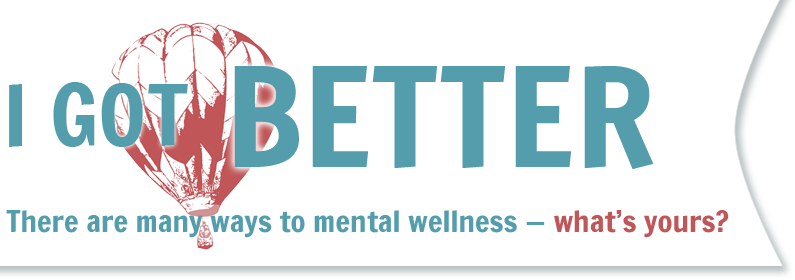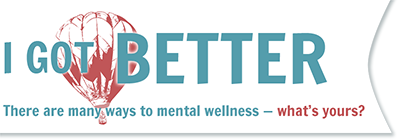Compassion for Yourself
Al Galves; Las Cruces, NM

Have you ever taken a prescribed psychiatric medication?
No
During your mental health care, have you often felt hopeful about your chance of getting better?
Yes. The first treatment I received was very non-directive. It gave me an opportunity to become more comfortable with things about me that were scary, debilitating and shameful. Being able to accept what was true about myself – especially the parts that I was ashamed of and wanted to hide from myself and everyone else – was very liberating. It enabled me to free up a lot of energy that was being spent hiding that stuff from myself and others. This put me on a road to recovery and, as I began to feel better and more comfortable with myself, I had hope that I would continue to recover.
During your mental health care, have you often felt hopeless about your chance of getting better?
Yes. There were times when I realized that I would have to deal with being depressed and anxious for the rest of my life, that, in a sense, I would never get over it. That as long as I was alive there would be times in which I would be depressed, anxious, upset, agitated, sad, confused, etc.
If you overcame hopelessness that you could get better from a mental health or emotional problem, was there a turning point for you?
I think the main turning point occurred early in my first therapy (psychoanalysis – I lay on the couch and said everything that came to my mind in the presence of the analyst) when I became aware that I could live with the parts of myself that I hated, was afraid of and was trying to hide from other people.
Tell us what recovery means to you. How would you define recovery from mental health or emotional problems in your own words?
For me, recovery is slowly being able to use all of my faculties – my ability to think, understand, solve problems, make plans, make sense out of things, love my friends and family, use by body in satisfying ways (sports, exercise, dance), sing, relate enjoyably to other people, write, speak, make decisions, follow through in what I have agreed to do. It was very helpful to learn that I could earn a living through work. I got fired a bunch of times but I was always able to find work and eventually I learned how to get along with my fellow workers and be productive. It has also been helpful to be married to the same woman for almost 50 years. That provided a measure of stability and a foundation of care that was very helpful.
How recovered do you consider yourself from any mental health or emotional problems? Please use your own definition of recovered. Indicate your level of recovery using the 10-point scale below.
10
If you could send a brief message to someone receiving mental health care today who is feeling hopeless about getting better, what would you say?
Have some compassion for yourself. You didn’t choose your parents, you didn’t choose what happened to you in the first 18 years of your life. You are the one who is most able to help yourself but whatever has happened to you has not been your fault. None of it. Period. Now, you are the one who is responsible for your healing and your recovery. You can get help but you are the one who is going to do it. Take your time and slowly get on the path that you want to be on, the path towards using your abilities in a satisfying and remunerative way, developing satisfying love relationships and friendships, enjoying sports, exercise, music, nature, being alive in the world. Know that at times you’ll fall off the path or be pushed backwards but that you can always get back on it and slowly and surely make your way towards the life that you want.
Can you give examples showing you have gotten better from a mental or emotional problem, such as how you are doing well or accomplishing goals you have chosen?
One of my problems that has gotten me into lots of trouble is that I have been excessively competitive, always trying to be better than the next guy, being so competitive that I was afraid to compete with people who were better than me or who I thought were better. That competitiveness grew out of being hurt by my father who turned on me when I was about 12 years old and treated me with disdain and contempt for most of the rest of my life. I have learned to manage that competitiveness, to use it to become good at what I want to become good at but not to let it ruin my work relationships and my friendships, etc. It’s been a long battle. I’m still involved in it. And I know that I wasn’t born that way. It’s because of what happened to me but I’m the one who needs to learn to manage it, balance it, tone it down, etc. One of the ways in which therapy has helped me is it has enabled me to become much more accepting of what is true about myself, to understand why I have become this way and the first step in changing is really accepting – not only accepting but loving – what is true no matter how horrible, debilitating, gruesome, etc. That is one of the great benefits of therapy as is learning that whatever is going on with you, no matter how painful, scary or shameful, is going on for a reason. It has to do with your life, how your are living it, how you are reacting and coping with it, how you are feeling about it. And it has to do with your relationships with the important people in your life, how that is going and what you want to do about making it better, less painful, more harmonious and satisfying.


